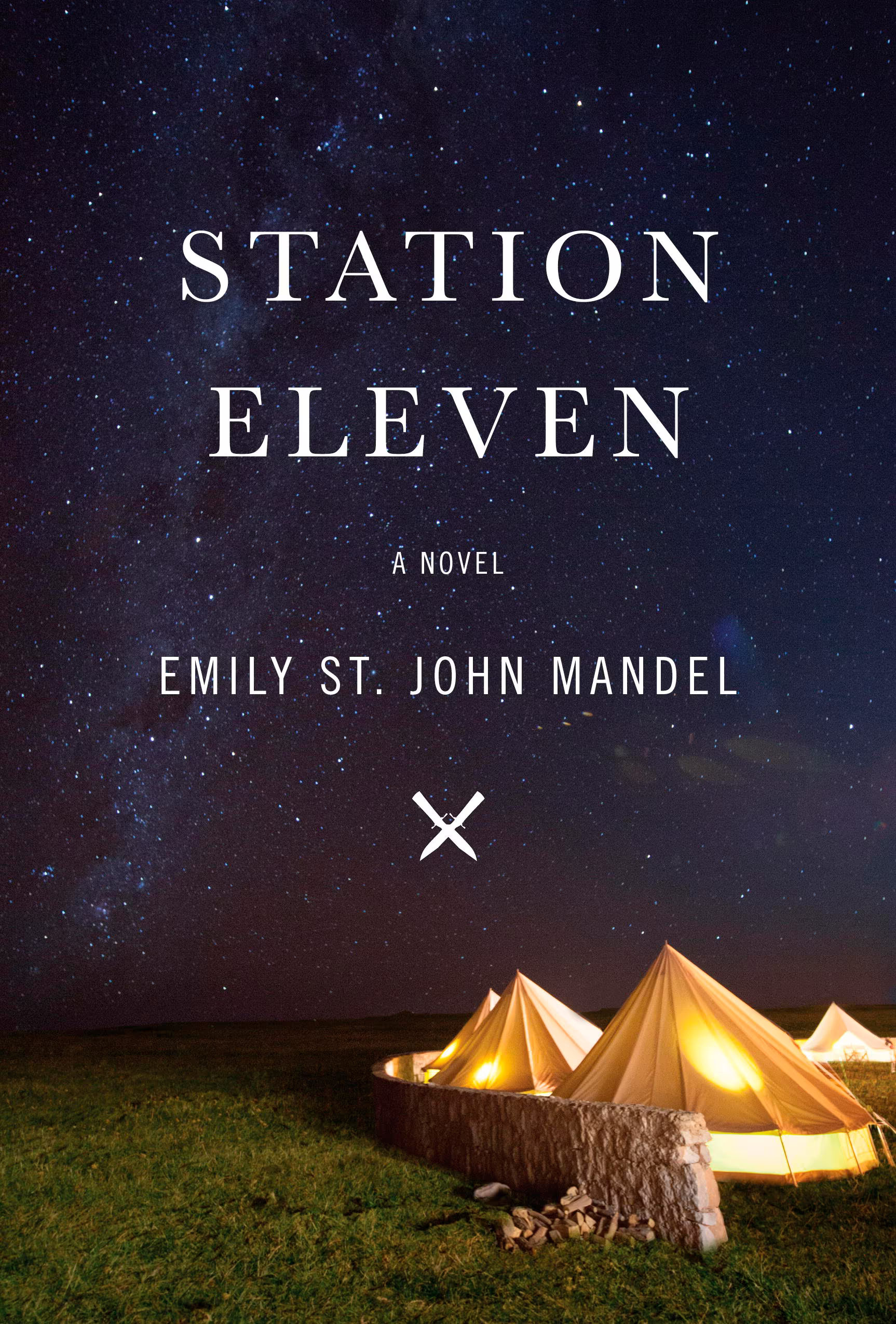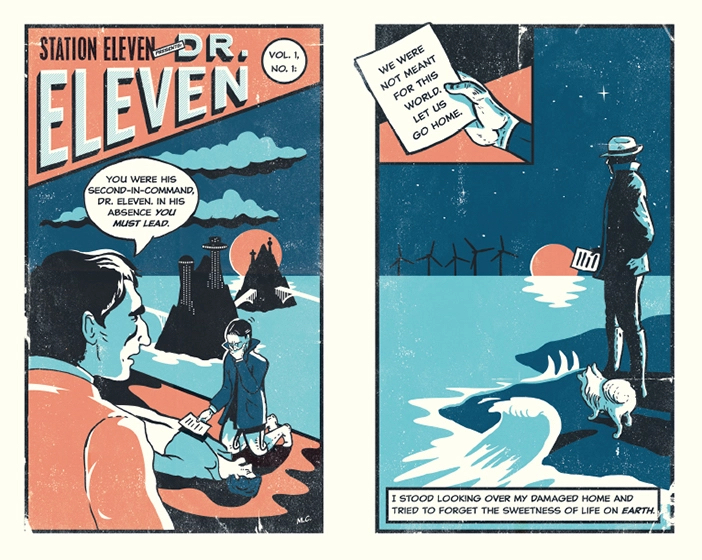Station Eleven

Station Eleven is the second book I’ve read by Emily St. John Mandel, the first being Sea of Tranquility (you can find my review of it here). Just like with Sea of Tranquility, I absolutely adored Station Eleven.
Station Eleven’s story spans nearly 50 years and jumps between characters and events. One of the major storylines describes the life of Arthur Leander, a famous actor who dies of a heart attack while performing King Lear in the first chapter of the book. The night he dies, a deadly pandemic breaks out, and civilization quickly collapses in the following weeks (by the way, this book was written in 2014, so way before the COVID pandemic). A second major storyline follows Kristine Raymonde–who was a child actress in the same King Lear production–twenty years after the pandemic. She is part of a traveling Shakespeare troupe that performs at some of the few interspersed settlements of the new world.

I stood looking over my damaged home and tried to forget the sweetness of life on Earth.
To me, this quote–an inner monologue of Doctor Eleven, leader of the titular Station Eleven and main character of a pre-pandemic comic book that Kristine cherishes–perfectly encapsulates what draws me to the novel. Although this is ostensibly a story about an apocalypse, most of the book is not an account of the nitty-gritty life-or-death struggles in a post-apocalyptic world. At least a third of the novel describes events years before the Georgian Flu. In Kristine’s storyline, the Shakespeare troupe encounters some dangerous obstacles–notably a disturbing cult led by a self-appointed Prophet–but the world twenty years post-collapse has settled down and violence is less frequent compared to the earlier years.
Instead, Station Eleven is a beautifully written tragedy about how different people react to and deal with loss. In Kristine’s comic, Station Eleven is a moon-sized space station filled with human refugees after an alien civilization takes over Earth. Doctor Eleven’s grief manifests as a desire “to forget the sweetness of life on Earth.” Similarly, Kristine unconsciously represses memories; although she was already 8 years old when the Georgian Flu hit, she remembers very little about life before the pandemic (including the faces of her dead parents) and her traumatizing first year following the collapse. She even comments that “the more you remember, the more you’ve lost.” Others choose to remember and use memorialization as a means of coping. One character creates a museum dedicated to preserving artifacts (aka things such as mobile phones) from before the collapse. In a sense, the Shakespeare troupe’s existence is also a form of remembrance, and every performance is a dedication to times past. Others move past loss by redefining themselves. Before the pandemic, Miranda Carroll, one of Arthur Leander’s ex-wives that he cheated on, sheds off the devastating loss of her marriage (as an aside, this example also demonstrates how St. John Mandel shows that loss can take different form) through metamorphosis; she transforms from a housewife and artist into a successful executive of an international shipping company. Even the antagonistic Prophet is coping with loss in his own way. Faced with the end of the world, he chooses to find some semblance of meaning in the loss–albeit in a completely twisted way. The author’s depictions of all these individual tragedies are brought to life by her exquisitely designed and beautifully written characters. Just like in Sea of Tranquility, St. John Mandel often depicts mundane/simple moments that so effectively humanize the characters.
I also enjoyed that St. John Mandel’s depiction of the apocalypse was somewhat of a hopeful one. When Station Eleven received the Arthur Clark Award, the chair of judges noted that “while many post-apocalypse novels focus on the survival of humanity, Station Eleven focuses instead on the survival of our culture.” I find a certain beauty and optimism in the thought of a Shakespeare troupe continuing to perform even after an apocalypse. Kristine’s group enshrines these ideals with their motto: “Because survival is insufficient” (a quote borrowed by the troupe from an episode of Star Trek). I am also reminded of John Green’s comment that “art isn’t optional for humans”–a statement he makes while reflecting on the prehistoric cave paintings in Lascaux.
In conclusion, Station Eleven is absolutely amazing, and I highly recommend it and Emily St. John Mandel. I give Station Eleven 5/5 stars.
P.S. There’s an HBO adaptation of the book. I have not read it, but I heard it is excellent. It has 98% on Rotten Tomatoes, for what that’s worth.